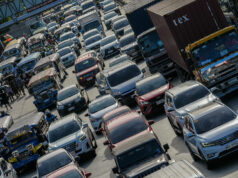FINANCE Secretary Carlos G. Dominguez III cited the need for closer ties between the World Bank and the Asian Development Bank (ADB) to respond more effectively to the financing needs of the Asia-Pacific region.
In a statement on Tuesday, Mr. Dominguez said that the multilateral lenders should coordinate closely to help weed out duplicated functions.
He made the call during the Association of Southeast Asian Nations (ASEAN) 23rd Finance Ministers Meeting last week in Chiang Rai, Thailand.
“So I’d like to suggest, especially on behalf of the smaller countries, that ADB and World Bank consider becoming more closely coordinated, and perhaps look for areas where they can cut their own internal costs in servicing the other needs of ASEAN,” Mr. Dominguez said.
Taking the point of view of both institutions, he added that he does not see the need for “spending so much overhead in duplicating (the roles) of both ADB and World Bank around the region.”
“From the point of view of the client, why do we have to deal with two bureaucracies for the same purposes?”
Mr. Dominguez represents the Philippines in the Governor’s Boards of the ADB and the World Bank.
Apart from the Philippines, Cambodia and Vietnam also called on the multilateral institutions to work closely and complement their efforts in alleviating poverty in the region.
He made the statement after the presentations of the multilateral banks before the ASEAN Finance ministers about their respective financing programs in the region.
Former United States Treasury Undersecretary and now World Bank President David Malpass told Mr. Dominguez in a phone conversation in February that close collaboration between the World Bank and ADB will enable the institutions to “build on each other’s strengths.”
Mr. Dominguez also expressed appreciation for the two banks for helping the Philippines develop new reform policies and secure financing support for the government’s massive infrastructure push.
“Our engagement with ADB has been the most intense I think in the last 20 years; so with the World Bank,” he added.
Of the 75 flagship projects under the government’s “Build, Build, Build” program, 44 are in various stages of implementation, 24 are undergoing pre-investment study and the remaining seven are for review.
The government embarked on an P8-trillion infrastructure spending program until 2022 in an effort to boost economic growth to 7-8% each year. — Karl Angelo N. Vidal



